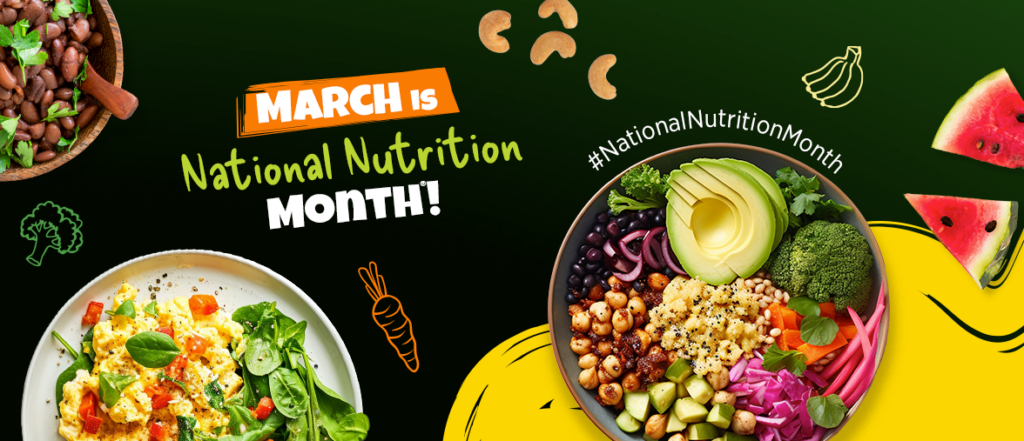
March is National Nutrition Month (NNM), a time to put additional focus on nutrition and wellness. This year’s theme, “Beyond the Table,” highlights the importance of a sustainable food system and supporting local food producers. “Beyond the Table” explores the farm-to-fork part of our food system—often overlooked when we visit our local market.
Guiding Stars is all about healthier food systems. This year’s NNM theme reminds us of the importance of looking deeper at our foods, beyond their rating. When we do this, we aren’t just nourishing ourselves. We’re also considering the growers, food producers, and other essential factors that enable us to have access to nutritious foods.
Climate Change
When you’re looking for items on your list, it’s easy to forget about the effects of extreme weather. But storms, droughts, and other events directly impact growers and ultimately what you see (or don’t see) on store shelves. As growers contend with changing conditions and potentially devastating losses, climate change will increasingly be felt in the market. When harvests are significantly impacted and fresh produce dwindles, choose Guiding Stars earning frozen or canned versions. You’ll still be able to enjoy a colorful diet while also supporting growers. You can also buy in-season, homegrown produce to reduce your carbon footprint and support local farmers.
Aquaculture
Supporting a sustainable food system includes learning more about how food is produced. For example, there’s still a lot of uncertainty around aquaculture and farmed fish. But today’s practices are far more innovative than they used to be. For one, most farming occurs in the deep sea, not along the fragile coastline. This is safer for fish, and also the environment. Try to source your seafood from retailers that offer transparency and traceability, which are key aspects to seafood sustainability. One of Guiding Stars’ retail partners, Hannaford Supermarket, is proud to partner with the Gulf of Maine Research Institute and the Ocean Disclosure Project. These organizations work to ensure that the seafood sold in their stores is harvested safely and sustainably.
Corporate Social Responsibility
Have you visited the websites of well-loved brands to explore their commitment to their workers, the environment, and how they source ingredients? I strongly encourage you to do so. You may be pleasantly surprised to find that a company’s structure includes employee ownership. Or that it only uses milk from small farms. Or that its packaging is made from recycled materials. When companies engage in social responsibility to protect workers, the environment, and you, they’re thinking beyond simply providing a product.
Sustainability in Your Home
It’s certainly important to consider how food companies are doing their part. But it’s also essential to remember what we can do at home. Reduce waste in your kitchen and adopt dietary approaches that are better for the environment. Shop locally, embrace menu planning to use leftovers and spare ingredients, and utilize more reusable and sustainably produced products. Any small change is valuable if it moves your home toward a more environmentally focused lifestyle.
This March, I encourage you to think about the food that nourishes you. How does it get to your table, and what can you do to be part of a sustainable food system?